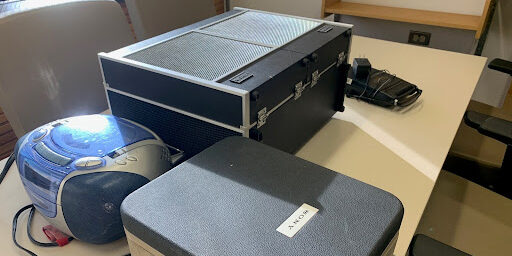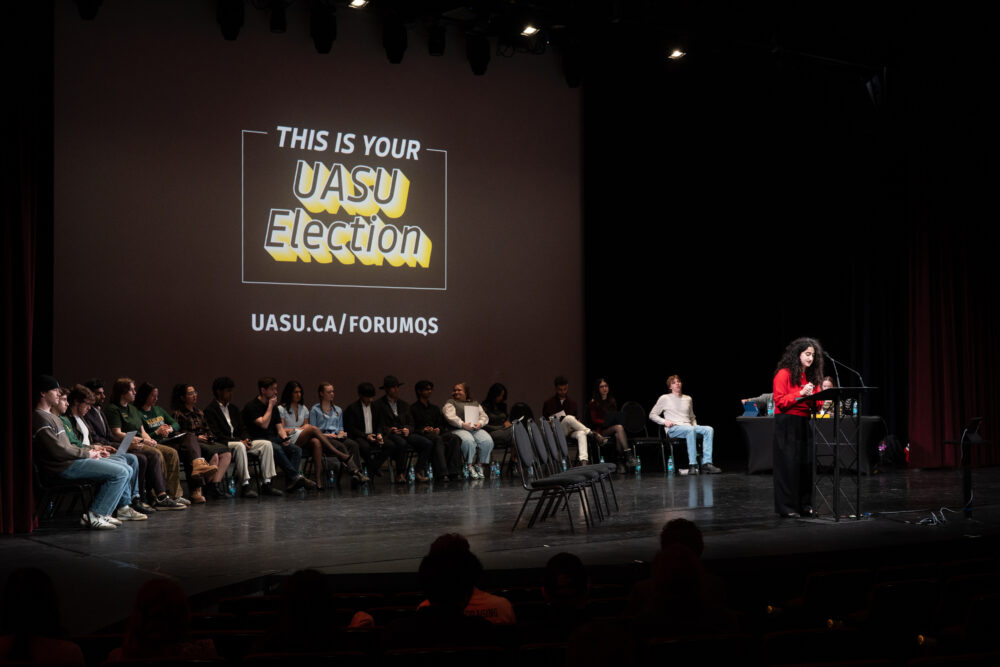 Supplied
SuppliedUniversity of Alberta professor Michael O’Driscoll is working to restore a collection of lost audio and video recordings, through the SpokenWeb project. His goal is to integrate them into the discipline of literary studies.
O’Driscoll is a professor in the department of English and film studies at the U of A and director of the Kule Institute for Advanced Study. He is also a governing board member of SpokenWeb. For SpokenWeb, he is working with U of A digital curation librarian, Sean Luyk, and digital media expert and professor, Geoffrey Rockwell.
Through a seven-year partnership grant with the Social Sciences and Humanities Research Council (SSHRC), SpokenWeb is “building a national network of literary sound archives,” O’Driscoll said. Including the U of A, there are 18 different institutions and academic libraries involved in this project.
SpokenWeb “unearthing” recordings for academics and members of the public
O’Driscoll described the process of institutions developing their own collection as “elaborate and labour intensive.” Researchers have to digitize and describe analog media on reel-to-reel tape recorders and cassette tapes. These mostly come from the 1960-80s, O’Driscoll said. He added that a large aspect of SpokenWeb is close listening.
“We’re unearthing those [recordings] and making them available to researchers, learners, and members of the public for the first time.”
After the researchers document the files, they then time-stamp them. This involves producing a “time code of table of contents for the materials that are held on each recording.”
Sarah Freeman, a research assistant for SpokenWeb, has been closely involved in the time-stamping process. It can be challenging to time-stamp these recordings because it is not always clear what the
intention is.”“[There] are always things that we talk about as a group. We get to interrogate that and ask how to time-stamp [to] make it the most accessible to people that are using this resource,” Freeman said.
According to O’Driscoll, this research is unique to the SpokenWeb project. Literary studies have previously “focused exclusively on the printed word.”
“One of the key tenets of the SpokenWeb project is that we’re not just building an archive. We’re also building a whole new area of the discipline.”
Auditory recordings are more than “a secondary version of the printed text,” O’Driscoll says
Many of the recordings only exist in auditory form, O’Driscoll said. For O’Driscoll, auditory literature is not “a secondary version of the printed text.” Rather, a recording is its own “unique expressions” of ideas within the literature.
“The
might be introducing elements into it through different forms of vocal performance that aren’t there on the page. So this is a really rich cultural resource in terms of studying and learning about literature, because it provides us with these entirely distinctive forms of text.”Spoken literature is not only unique in how it is performed. It is also shaped by events occurring at the time of the performance.
“We had a recording with a bunch of references to the moon landing and that’s not something that you would get in a printed text. It’s really interesting to see how the current cultural moment is also reflected through these recordings,” Freeman said.
“We’re providing new ways to think about and access literature”
The SpokenWeb team is also creating a portal called Swallow. This portal will “integrate [the] collections” from institutions all over the country and provide access to the archived recordings. This resource will launch sometime in the coming months and provide access to upwards of 7,000 hours of literary sound.
“We’re providing new ways to think about and access literature. We’re opening up the conversation to thinking about how literature is produced and circulated, in a manner that hasn’t been very well considered in the humanities and English studies,” O’Driscoll said.
The SpokenWeb project is currently in its sixth year of a seven-year partnership grant with SSHRC. However, O’Driscoll said it is far from finished. O’Driscoll and the research team are considering options to continue the project in the coming years. They may seek additional major funding and try to bring in new partners.
“We want to consolidate the collections that we have and make sure they’re as fully developed as possible. And, integrated with the other collections across the country so that they can be accessed and made use of.”




